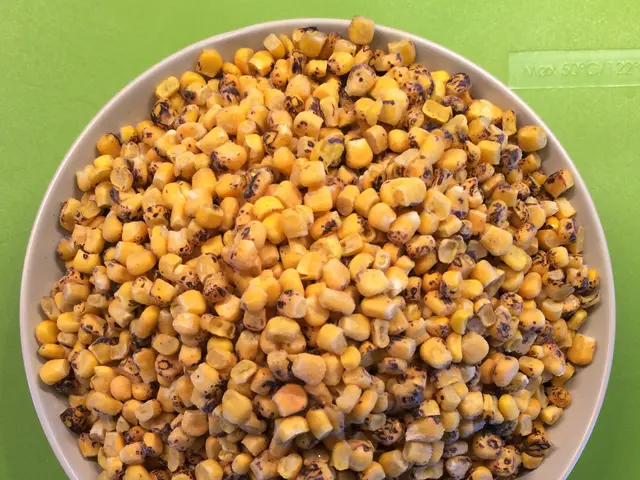Tea and Chocolate Flavonoids Potentially Lower Blood Pressure Levels
Cocoa, tea, apples, and grapes, packed with flavan-3-ols, are making big waves in the management of high blood pressure. According to a recent meta-study, these compounds can significantly improve endothelial function, a key factor in maintaining healthy blood pressure levels.
The study suggests that flavan-3-ols could serve as an extra support in treating hypertension, alongside lifestyle changes and medication. Some of the studies included in the meta-analysis even showed improvements comparable to antihypertensive medications.
While flavan-3-ols aren't proposing to replace medications, they offer a tasty and easily accessible solution for those looking to manage their hypertension. These beneficial compounds can be found in everyday foods like coffee, dark chocolate, cocoa powder, apples, and grapes.
The study found consistent benefits for endothelial function, with improvements observed in both healthy individuals and those with hypertension. However, the reduction in blood pressure was more often seen in people with existing high blood pressure.
Healthy endothelial function is vital for maintaining normal blood pressure. As cardiologist Jayne Morgan, MD from Hello Heart explains, it reflects the elasticity of the arteries, acts as a barrier for toxins, reduces platelet adhesion, and responds to injuries.
Michelle Routhenstein, a registered dietitian specializing in heart disease, emphasizes the importance of flavan-3-ols in a balanced heart-healthy diet. These beneficial compounds are most available in unprocessed foods, such as dark chocolate and green or black teas, as processing can damage or remove the compounds.
But flavan-3-ols aren't the only natural compounds being investigated for supporting heart health. Resveratrol from grapes, curcumin from turmeric, berberine from various plants, Omega-3 fatty acids from fish and seeds, garlic extract, and quercetin are other compounds under investigation.
However, Morgan cautions that 'natural' does not always mean 'safe.' Berberine, for example, may interfere with anticoagulants and statins.
As a cardiovascular dietitian, Routhenstein believes this research further highlights the power of food in improving blood vessel health. Diets rich in whole foods, vegetables, fruits, whole grains, and essential minerals like magnesium and calcium can promote healthy blood vessels, decrease inflammation, and lower the risk of heart disease and stroke.
Focusing on food choices can significantly impact key factors related to heart health, such as blood pressure, cholesterol levels, weight, blood sugar levels, and inflammation, while avoiding processed foods, added sugars, saturated fats, salt, trans fats, and refined carbohydrates like white bread, pasta, and pastries.
In essence, adopting a heart-healthy diet can potentially match or even exceed the effects of medications in managing blood pressure and promoting overall cardiovascular health. It's a big deal that we don't talk about enough!
- The management of hypertension could benefit from flavan-3-ols found in dietary sources like cocoa, tea, apples, and grapes.
- According to the meta-study, flavan-3-ols can significantly enhance endothelial function, which plays a crucial role in maintaining healthy blood pressure levels.
- Flavan-3-ols might serve as additional support for treating hypertension, coinciding with lifestyle changes and medical-conditions management.
- Some studies revealed improvements comparable to antihypertensive medications, supporting the potential of flavan-3-ols in managing hypertension.
- Adequate nutrition, focusing on unprocessed foods like dark chocolate and green or black teas, can maximize the availability of flavan-3-ols in a heart-and-wellness diet.
- Apart from flavan-3-ols, other natural compounds like resveratrol, curcumin, berberine, Omega-3 fatty acids, garlic extract, and quercetin are under investigation for supporting cardiovascular health.
- Embracing a heart-healthy diet, rich in whole foods, vegetables, fruits, whole grains, and essential minerals, can potentially match or even surpass the benefits of medications in managing blood pressure and improving overall cardiovascular health.








